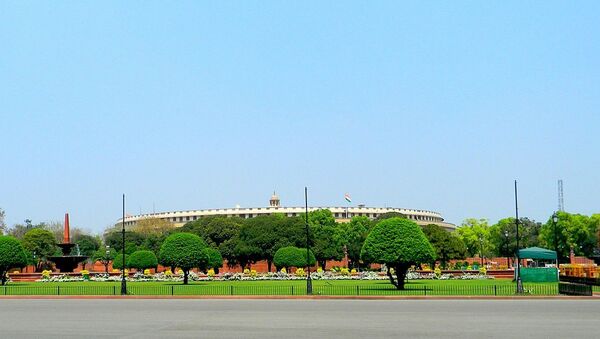Indian Home Minister Amit Shah, while replying in the debate late on Monday in the parliament, tried to persuade the opposition to help control the anger of the people, whom he described as “misguided” by an unscrupulous segment of society.
War Cry
College students in north-eastern states – constituting around eight percent of the total of the states' and four percent of the country’s population – wrote anti-Citizenship Bill slogans with their blood at a university in Guwahati and some other universities on Tuesday.
— The Dalit Voice (@ambedkariteIND) December 10, 2019
The region, having 98 percent of the boundary with countries like China, Myanmar, Bangladesh, Bhutan, and Nepal, also houses over 200 of the 635 tribal groups in the country. They speak a variety of Tibeto-Burman languages and dialects that are completely different from the mainland, i.e. people in and around Delhi.
Despite assurances from the governing BJP party's leaders, protesters said, the people have no option as the legislation will destroy indigenous people’s identity in the region. They also feared that the legislation will enhance the unemployment level in these states further, as the limited economic opportunities may be occupied by refugees.
The people claimed that the eight states – Arunachal, Manipur, Mizoram, Nagaland, Meghalaya, Assam, Sikkim, and Tripura – have special protection under specific sections of the Indian constitution and the proposed law violates these provisions.
Is it Against Muslims?
People, including prominent scientists in Prime Minister Narendra Modi’s home state of Gujarat, in cities like Kolkata and Delhi also staged massive protests against the proposed law. They fear, in particular, that the careful exclusion of Muslims from the ambit of the Bill will greatly strain the country’s pluralistic fabric.
Opposition parties have been accusing the government of destroying the foundational values of the constitution, as they claimed that “Mahatma Gandhi, Jawaharlal Nehru, Dr B.R. Ambedkar, Maulana Azad (founding fathers of the country) said, religion cannot determine the nationhood”.
Myths Government is Busting
Indian Home Minister Amit Shah has said “the Bill does not come in conflict with any of the articles of the Constitution”. He also declared the north-eastern states, except a few parts, as protected areas to diffuse the fear that grappled the entire region.
The bill requires any outsider, including Indian citizens, to have an official travel document from the Indian Government to enter a protected area for a limited period. It means any refugee receiving Indian citizenship, once the proposed law turns effective, cannot reside in these north-eastern states.
About Muslims, the minister assured the minorities that the “proposed Bill intends on the positive direction to grant citizenship to all minorities subjected to religious persecution in Bangladesh, Pakistan, and Afghanistan. This Bill has not taken away any of the rights of the Muslim community”.
Referring to the 1950 Nehru-Liaquat Pact, signed after the Indian partition between then Indian Prime Minister Jawahar Lal Nehru and his Pakistani counterpart Liaquat Ali Khan, to justify the bill, Shah said: “Had the spirit of the Pact been followed by Pakistan, there would be no need to bring this Bill”.
Under the Nehru-Liaquat Pact
• Refugees were allowed to return unmolested to dispose of their property
• Abducted women and looted property were to be returned
• Forced conversions were unrecognised
• Minority rights were confirmed
Internet and all communication lines shut off in Tripura after reported clashes. pic.twitter.com/Mxpp2k8ugj
— Makepeace Sitlhou (@makesyoucakes) December 10, 2019
Who Benefits from the Citizenship Amendment Bill?
It allows Hindus, Sikhs, Buddhists, Jains, Parsis, and Christians from Afghanistan, Bangladesh and Pakistan to apply for Indian citizenship, even if they entered India illegally before 31 December 2014. It also requires Indian citizenship seekers to “prove that they came to India due to religious persecution”.
Although the government never claimed any number of such minorities who entered India before 2014, it is estimated that around 200,000 Hindu and Sikh refugees from Bangladesh, Pakistan, and Afghanistan reside in India.





